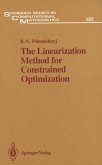This book presents a systematic study on the inherent complexity in fuzzy systems, resulting from the large number and the poor transparency of the fuzzy rules. The study uses a novel approach for complexity management, aimed at compressing the fuzzy rule base by removing the redundancy while preserving the solution. The compression is based on formal methods for presentation, manipulation, transformation and simplification of fuzzy rule bases, which are illustrated by algorithms as well as results from numerous examples and two case studies. The results are directly applicable or easily extendable to a wide class of fuzzy systems and detailed benchmarks for expanding these systems to new areas such as fuzzy networks and fuzzy multi-agent systems are introduced. The intended readers are people from both academia and industry, who would be interested in building and implementing advanced fuzzy systems.
Dieser Download kann aus rechtlichen Gründen nur mit Rechnungsadresse in A, B, BG, CY, CZ, D, DK, EW, E, FIN, F, GR, HR, H, IRL, I, LT, L, LR, M, NL, PL, P, R, S, SLO, SK ausgeliefert werden.
From the reviews:
"Prof. Gegov's book is a timely contribution to a very rapidly evolving field--as he terms it, the field of complexity management. ... book would be an important addition to the library of anyone doing serious work in the development of fuzzy systems. ... This book will help many serious practitioners make fuzzy systems a more compact and efficient modeling approach to deal with complex systems which are described by a large number of rules." (Timothy J. Ross, Artificial Intelligence, Vol. 171 (18), 2007)
"The book is presented in such a way that it could be very useful for both academic and industrial researchers as a research monograph to advance their knowledge in fuzzy systems. It could also be used to some extend as a text book for both undergraduate and postgraduate studies interested in fuzzy systems. ... book is written in a lucid and reader-friendly style supported by many examples and line diagrams illustration. ... This well presented and written book admirably meets the goals of its author." (Ahmad Lotfi, Journal of Multiple-Valued Logic and Soft Computing, Vol. 15, 2008)
"If you have ... wish to take fuzzy logic ideas further and place them on a firm theoretical foundation, then this book may be for you. ... In conclusion, this book is a useful addition for specialists interested in the theoretical and mathematical underpinnings of fuzzy systems." (Adrian A. Hopgood, International Journal of Hybrid Intelligent Systems, Vol. 5, 2008)
"This approach is different from the mainstream approach of complexity reduction in fuzzy systems ... . author presents the subject with enthusiasm, greatinterest and mastering of the subject. ... The book is considered a major contribution to both the qualitative and quantitative aspects of complexity in fuzzy based systems. ... author has succeeded in using both qualitative and quantitative approaches of representation in order to manage complexity. Therefore, he should be congratulated for his contribution to the field of managing complexity in fuzzy systems." (Ashraf Labib, Fuzzy Sets and Systems, Vol. 161 (21), November, 2010)
"The book presents a novel systematic methodology for the qualitative analysis of rule bases and provides methods and algorithms to manipulate and simplify them. ... On the other hand, given the novelty of the techniques presented, one can imagine that such examples are not readily available. In that sense, the book is likely to attract more readers from the academia than researchers in industry or practicing engineers." (Robert Babuska, IEEE Computational Intelligence Magazine, November, 2007)
"Prof. Gegov's book is a timely contribution to a very rapidly evolving field--as he terms it, the field of complexity management. ... book would be an important addition to the library of anyone doing serious work in the development of fuzzy systems. ... This book will help many serious practitioners make fuzzy systems a more compact and efficient modeling approach to deal with complex systems which are described by a large number of rules." (Timothy J. Ross, Artificial Intelligence, Vol. 171 (18), 2007)
"The book is presented in such a way that it could be very useful for both academic and industrial researchers as a research monograph to advance their knowledge in fuzzy systems. It could also be used to some extend as a text book for both undergraduate and postgraduate studies interested in fuzzy systems. ... book is written in a lucid and reader-friendly style supported by many examples and line diagrams illustration. ... This well presented and written book admirably meets the goals of its author." (Ahmad Lotfi, Journal of Multiple-Valued Logic and Soft Computing, Vol. 15, 2008)
"If you have ... wish to take fuzzy logic ideas further and place them on a firm theoretical foundation, then this book may be for you. ... In conclusion, this book is a useful addition for specialists interested in the theoretical and mathematical underpinnings of fuzzy systems." (Adrian A. Hopgood, International Journal of Hybrid Intelligent Systems, Vol. 5, 2008)
"This approach is different from the mainstream approach of complexity reduction in fuzzy systems ... . author presents the subject with enthusiasm, greatinterest and mastering of the subject. ... The book is considered a major contribution to both the qualitative and quantitative aspects of complexity in fuzzy based systems. ... author has succeeded in using both qualitative and quantitative approaches of representation in order to manage complexity. Therefore, he should be congratulated for his contribution to the field of managing complexity in fuzzy systems." (Ashraf Labib, Fuzzy Sets and Systems, Vol. 161 (21), November, 2010)
"The book presents a novel systematic methodology for the qualitative analysis of rule bases and provides methods and algorithms to manipulate and simplify them. ... On the other hand, given the novelty of the techniques presented, one can imagine that such examples are not readily available. In that sense, the book is likely to attract more readers from the academia than researchers in industry or practicing engineers." (Robert Babuska, IEEE Computational Intelligence Magazine, November, 2007)









